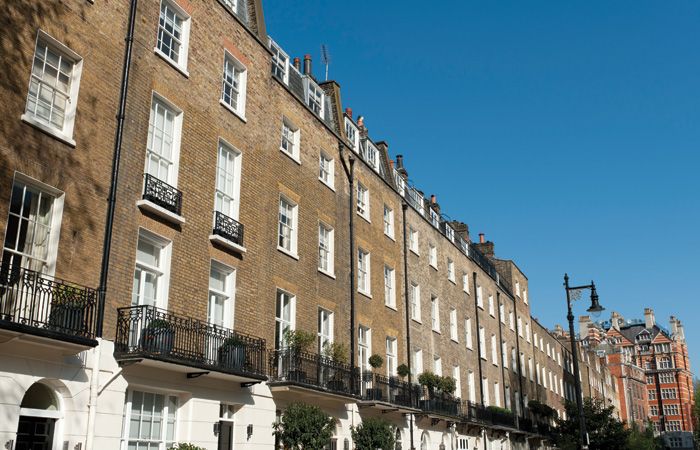
The introduction of a mansion tax is likely to trigger mass valuation appeals by the owners of impacted properties, experts warn.
The new high-value council tax surcharge (HVCTS), announced by the Chancellor today in her Autumn Budget, is set to target properties worth more than £2 million, following revaluation of properties in bands F to H by the Valuation Office.
It is not due to come into force until April 2028 and would be based on 2026 values, with the annual charge starting at £2,500 per year for properties just over the £2m threshold and rising to £7,500 for those worth over £5m.
The government is expecting to make more than £400m a year from the measure, but experts have questioned whether it will be the revenue-raiser that Rachel Reeves.
They warn that many home owners may take up the option for deferring the payment or challenge the decision of valuers, adding huge bureaucratic costs.
North London estate agent and former Royal Institution of Chartered Surveyors residential chairman Jeremy Leaf says: “Mansion tax change seems more political than anything bearing in mind the relatively little additional revenue to be raised and the likely deferred payment date.
“As a result, the impact on housing market activity will probably be minimal at worst.
“However, I wish the government luck trying to re-value all those properties and dealing with the arguments around the ‘pinch points’.
“As a result, the cost of the exercise could turn out to be higher than the extra sums making their way into Treasury coffers.”
HomeOwners Alliance chief executive Paula Higgins says: “The immediate result will be a freeze in the top end of the market as buyers and sellers wait for the outcome of the valuations.
“We’ll wait to hear further details about how the HCVTS or ‘mansion tax’ will be set up in the planned public consultation in early 2026.
“But our initial response is we’re sceptical about whether the revaluation needed for this mansion tax can be delivered cleanly and on time.
“A mass revaluation of bands F to H will inevitably trigger large numbers of appeals.
“Without clear valuation rules, adequate resourcing, and a straightforward process people can trust, this risks becoming chaotic, slow, and deeply contentious.
“Another key concern for homeowners is whether this is the thin end of the wedge?
“Once measures are introduced, they have a habit of being extended or thresholds not being updated, and more people end up paying tax as a result.”
Higgins says that the mansion tax could have a knock-on impact on many homeowners who are not the intended target of the chancellor.
She adds: “We expect these arbitrary thresholds of a mansion tax will distort the market, which OBR has recognised will cause bunching of sales just below the thresholds.
“We need to remember that people living in high-value homes aren’t always cash-rich.
“Many are stretched, still paying big mortgages, and have simply ridden a wave of rising prices.
“A mansion tax would freeze investment in homes over £1m overnight, as owners hold back on improvements to avoid being pushed over a threshold the government will almost certainly freeze.”
Quilter mortgage expert Zara Bray agrees: “The measure may influence behaviour at the margins, encouraging people to delay improvements, postpone moves or hold on to properties that no longer suit their needs simply to avoid triggering the levy.
“This kind of friction at the top end of the market can ripple through chains, reducing mobility more widely.”
Rightmove property expert Colleen Babcock also foresees distortion across the property market as a result of the tax.
She says: “Even if some wealthier buyers are unfazed by an additional cost, we could see some fall-throughs as others in this price bracket reconsider the long-term implication of their purchase.
“Sellers of homes priced very close to the £2m mark may need to ask for £1.99 million to avoid putting off potential buyers.
“And retired homeowners who benefitted from house price inflation may face the difficult decision of whether they can afford the annual upkeep of a £2m home.
“Importantly, while this likely very complex tax aims to target the £2m and £5m price sectors, there is an inevitable trickle-down effect for the rest of the market.
“Even though our data shows that less than 0.5% of sales would be directly affected, a slower market can affect all types of movers, from first-time buyers to key workers and families.”
Richmond estate agency Antony Roberts’ head of sales Amy Reynolds, warns that by limiting the revaluation to bands F-H new cliff edges will form between bands E and F.
“Homes on the same street will fall either side of an arbitrary threshold, triggering disputes, appeals and a huge amount of administrative red tape – all of which will cost local authorities time and money to resolve.
“And crucially, this partial revaluation won’t even deliver an immediate financial benefit.
“Because the changes are deferred until 2028, the measure is actually a cost, not a revenue-raiser – yet another layer of bureaucracy with no short-term gain.”



